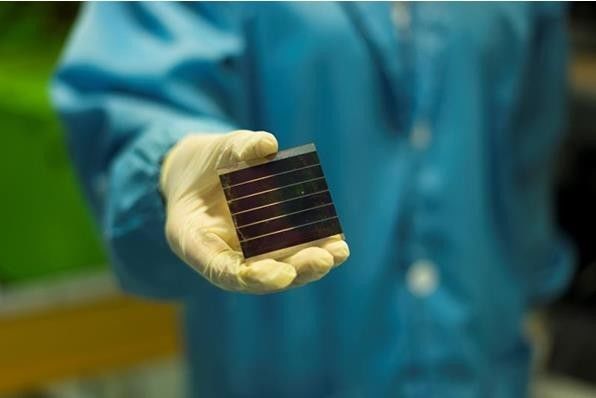China's New Photovoltaic Battery Is Shortlisted for the 2017 Nobel Prize in Chemistry
The Nobel Prize for Chemistry 2017 will be announced on October 4th, Beijing time, and Cheng Yibing is very excited after learning that the "Perovskite Solar Cell Technology" has become the "hot" of the 2017 Nobel Prize in Chemistry. The breakthrough made by Cheng Yibing's team in the preparation technology of the above two perovskite photovoltaic modules indicates that Chinese researchers are at the forefront of the world in the preparation technology of perovskite photovoltaic modules.

According to Prof. Peng Yong from the State Key Laboratory of Advanced Technology for Materials Composite Technology, Wuhan University of Technology, Cheng Yibing team developed a flexible perovskite solar cell module of 5cmx5cm plastic substrate, and passed a third-party authority at the National Photovoltaic Quality Supervision and Inspection Center on August 8th. The certification resulted in 11.4% of the photoelectric conversion efficiency of the module, exceeding the 10.5% photoelectric conversion efficiency of the 5cmx5cm flexible perovskite solar module announced by Toshiba Corporation on September 25.
Cheng Yibing’s team also made breakthroughs in the preparation technology of perovskite solar cell modules on glass substrates of 10cm x 10cm. Verified by the National Photovoltaic Quality Supervision and Inspection Center, the photoelectric conversion efficiency of its related components is 13.98%, ranking among the most tested and similar products in the world. Efficiency first.

The perovskite solar cell is one of the top ten scientific and technological breakthroughs of 2013 selected by Science magazine and is a new type of photovoltaic system that is expected to further reduce the price of photovoltaic power generation.
The successful development of perovskite solar cell modules is one of the preconditions for the market application of perovskite solar cells. Peng Yong said that Cheng Yibing’s team is based on the State Key Laboratory of Advanced Technology for Materials Synthesis at Wuhan University of Technology and has been working on the research and development of perovskite solar cell assembly technology since 2015. These two breakthroughs show that Chinese researchers have taken the lead in the preparation technology of perovskite photovoltaic modules.
Cheng Yibing graduated from the Wuhan University of Technology in the 1980s with a master's degree. He later studied in the UK as a doctor. Since 1991, he has been an academician at a university in Australia. In 2015, he returned to Wuhan University of Technology with a group of students with “power generation glass†technology. In the past two years, he took the lead in resolving all the technical problems before the pilot test and made samples that could be used for large-scale production. The technical route has been established, and the efficiency of power generation has been raised to a certain threshold, and it has also taken the lead in the international community.
The perovskite solar cell is one of the top ten technological breakthroughs in the world in 2013 selected by Science Magazine and is a new type of photovoltaic system that is expected to further reduce the price of photovoltaic power generation. The Cheng Yibing team of Wuhan University of Technology has devoted many years to the development of production technology for photovoltaic components.
Grow LED Thick Aluminum,Custom LED Grow Lights,AC100-240V LED Grow Lights,Custom LED Grow Lights
Yichang Green Eco-agriculture Co., Ltd. , https://www.plantgrowlamp.com